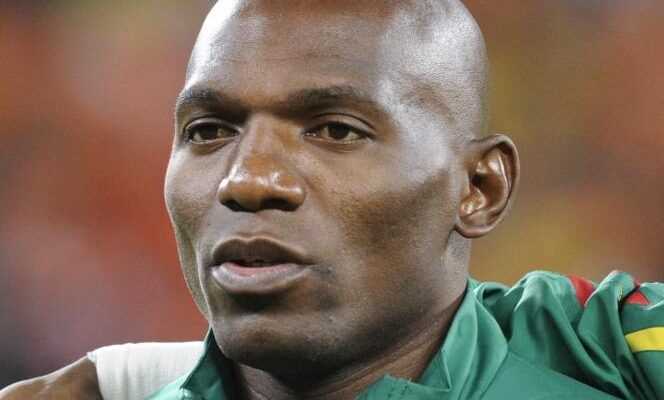Former Cameroonian international Geremi Njitap, 42, formerly of Real Madrid, Chelsea and Newcastle, has devoted more than a decade to defending the rights of African footballers.
Vice-president of the International Federation of Professional Footballers Associations (Fifpro), president of the Cameroonian players’ union, he calls on African governments to invest more in the development and professionalization of football on the continent.
What effect has the health crisis had on the daily lives of African players?
In Algeria, Morocco, Egypt, Tunisia and South Africa, the football economy is relatively structured and the impact of the crisis on players has been less severe than elsewhere on the continent. Overall, however, living conditions have deteriorated significantly. Before the health crisis, delays in the payment of wages could already reach several months. It got even worse. The clubs have less and less resources to pay their expenses. There is no more public in the stadiums and the sponsors, already scarce, are also confronted with economic difficulties.
Today, there are footballers who do not receive anything or almost nothing and who are forced to do another job in order to live. This is for example the case in Gabon, where the championship has not resumed.
Has the crisis pushed more footballers into exile?
We have information to confirm this. More and more of them want to leave their country to try to reach North Africa, Europe or Asia. The problem is, these players leave without an invitation from a foreign club to do a tryout. They are encouraged to do so by unscrupulous agents and sometimes also by their families who see in this exile the only hope for a better life.
Result: the players often do not have a visa, no money and find themselves on their own in countries they do not know. Their daily life is very precarious and, regularly, it ends badly.
What would be the solutions to limit this exodus?
African players want to leave because they have no prospects at home. To change this, we would have to develop professional football adapted to African realities. The players must be able to receive decent, regular salaries, to train and play on good grounds, to be protected in the event of injury, to contribute for their pensions… For that, I appeal to governments.
Nothing is possible without them?
No, because in Africa, the federations are mainly concerned with national selections and much less with club development. Basically, I do not understand why States do not consider football, which is the most practiced and popular discipline, as an opportunity for African youth. If they got more involved in the structuring of professional football, the effects would be multiple and everyone would benefit from it.
On condition, however, to put in place strict rules to control the use of public funds. In Gabon, the state subsidizes football very largely, but as the money is not tracked, there are abuses and the players are the first victims.
What concrete changes do you expect?
If the States released the means, the players would stay at home. This would improve the level of the championships and would attract audiences, sponsors, who could be offered tax incentives, and TVs that would pay broadcasting rights. If the players were paid decent wages, they would consume at home, pay taxes. Perhaps the best could be transferred overseas, which would earn the clubs money. If football were to develop, that would also create direct and indirect jobs.
States have everything to gain from this and yet nothing is really moving. I do not understand this lack of vision of African politicians. They know how to recover sports success, but not to be in the long term, for the good of their youth in particular.
